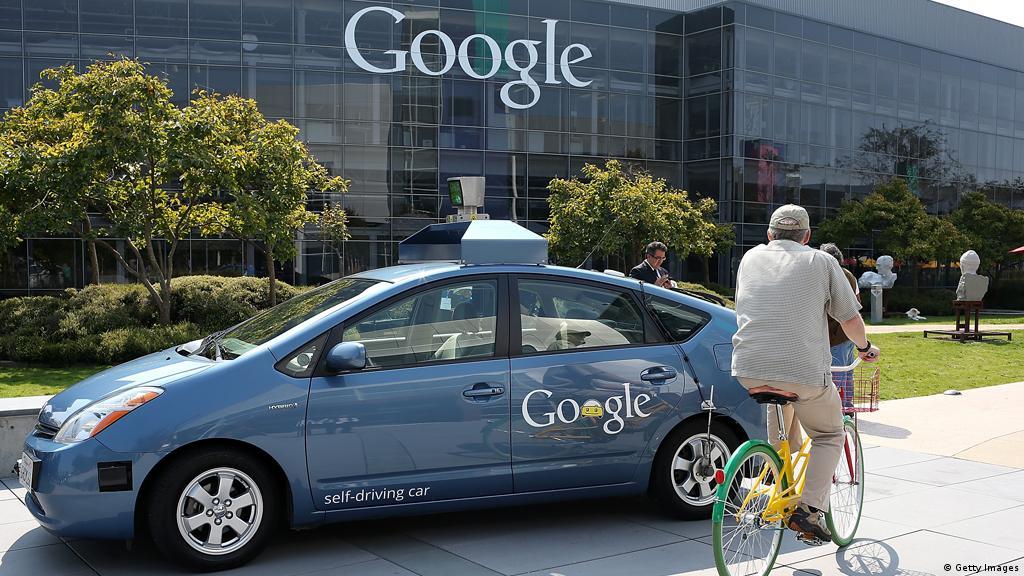FRANKFURT, GERMANY: In Hamburg, a fleet of collective electric Volkswagens owned by a commuter service roam the streets picking up and dropping off passengers. The vehicles drive themselves, but technicians work from a remote control center and monitor their progress with the help of video monitors. And if something goes wrong, they can take control of the car and steer it out of trouble.
This is the vision of the future, which is within the scope of the current technology, is about to become legal in Germany. The parliament in Berlin approved a new law on self-driving in May, and it awaits the signature of Germany's president, a formality. The law provides a path for companies to start making money from self-driving services, which could also spur development.
And with the requirement that humans supervise self-driving vehicles, the German law reflects a realization that researchers are still years away from having cars that can allow a driver to safely completely break free from driving and have the car do all the work. The law also requires that self-driving vehicles operate in a designated area approved by authorities, an acknowledgment that the technology is not advanced enough to operate safely in areas where traffic is chaotic and unpredictable.
So German companies pursuing this technology have adjusted their ambitions, focusing on money-making uses that don't require big breakthroughs.
Germany's approach, followed across the country, contrasts with a patchwork of laws in US states where the government has issued guidelines for self-driving, but its attempts - to create mandatory rules that apply in all 50 states - have stumbled in Congress amid a row between automakers and self-driving developers over what should be done. That the legislation says.
Some states have encouraged self-driving research. Arizona allows Waymo, for example, to offer driverless taxis in Phoenix. But it is not possible, after rolling out such services across the country, and achieving this kind of expansion, that it will not help to make them profitable.
"Germany is unique in the sense that you now have a country-wide law," said Eliot Katz, chief business officer of Phantom Auto, a California company that provides software for remote vehicle monitoring and control. "In the US, we don't have any comprehensive federal regulation of self-driving. We have state-level laws, which is problematic because driving is by nature interstate."
The German legislation could also give that country's automakers an edge in the race to design cars that can drive themselves. By deploying autonomous vehicles on a commercial scale, they will collect large amounts of data that they can use to develop the technology. And if the services are profitable, they will also help drive further development.
The law allows self-driving vehicles to remain within a designated area and under the supervision of trained technicians. The law essentially allows controllers to monitor many vehicles remotely. This means that a fleet of self-driving shuttles or taxis can be supervised by any person or team by video from the command center, eliminating the need for a supervisor in each vehicle. In the event of a problem, the technician will be able to control the vehicle from afar.

Supporters say the law would allow self-driving buses to serve rural areas where public transportation is scarce. Other services may include automated valet parking or robotic package delivery. Self-driving vehicles can be used to transport components or workers around a factory complex or transport students around a university.
There are already vehicles that can navigate a predictable route, such as from an airport parking lot to the departure hall, but current German law requires a human on board, negating any cost savings from excluding the driver.
Peter Legsmaier, director of the Fraunhofer Institute for Experimental Software Engineering in Kaiserslautern, said that if a driver can supervise dozens of buses from a command center "there are now attractive use cases". He said that would encourage further development.
In technical terms, the new law allows for Level 4 autonomous driving, i.e. the vehicle can steer and navigate on its own most of the time but may sometimes require human intervention. This is one step away from achieving the ultimate happiness of fully autonomous driving when the car can operate without any human assistance.
Volkswagen, for example, is testing its Moya car service in Hamburg and Hanover. The new law makes it easier for the company to achieve its goal of having Moya electric trucks autonomous by 2025, although further changes to the country's public transportation law may also be needed.
"The use of self-driving vehicles in Germany is now possible," Christian Singer, Volkswagen's senior vice president of commercial vehicles responsible for autonomous driving, said in a statement. "This is something that not only the company, but all market participants have been waiting for," he continued.
Technology companies like Waymo or automakers like Toyota have invested billions of dollars in self-driving technology, but they haven't yet seen a significant return on their investment. Uber sold its self-driving unit last year after investing more than $1 billion. Fatal malfunctions in Tesla's automated driving software have raised questions about the technology's shortcomings.
Whether a unified legal framework will give German companies a decisive advantage over American companies is another question. That was the intent.
"Germany could be the first country in the world that can bring driverless vehicles from the laboratory to everyday use," says Arnaud Klar, a Social Democratic member of parliament, during a debate on the law in Berlin.
And in the US, once a self-driving vehicle tries to cross state lines, things get complicated, with California, Arizona, Michigan and Pennsylvania leading in providing legal standards for self-driving technology. But 10 states, including New Jersey, Rhode Island and Maryland, have not passed laws or executive orders regulating self-driving, according to the National Conference of State Legislators. Nor did the laws in other states follow any fixed pattern.
© The New York Times Foundation 2021
It was transmitted to Arabic by the Riyada page - Al-Jazeera Net
